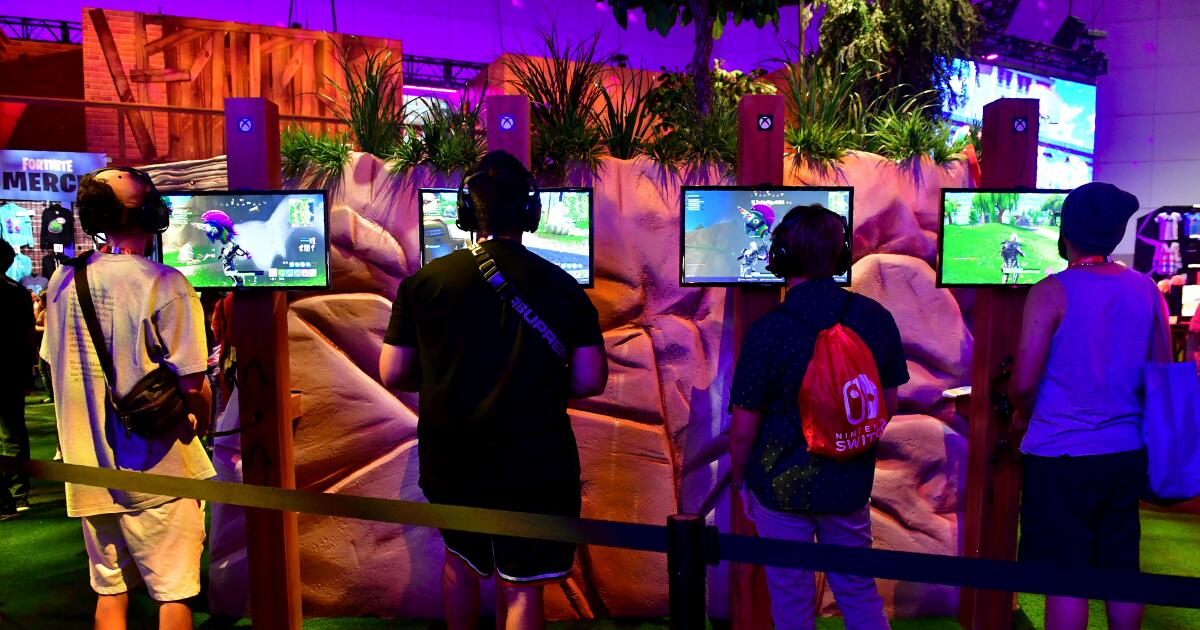 Source: Visit website
Source: Visit websiteEpic Games Inc. is launching a new mobile storefront Friday after four years of legal wrangling with Apple Inc. and Alphabet Inc.'s Google over their app store practices.
Chief Executive Tim Sweeney expects Epic Games' mobile versions of the popular titles "Fortnite," "Rocket League" and "Fall Guys" to draw in gamers on Android devices worldwide and iOS products in the European Union. By the end of the year, the company wants to attract 100 million new installs on mobile devices, which are responsible for half of the $188-billion games market.
In a news conference, Sweeney cited major challenges to that goal, including an installation process on iOS devices that he said was designed to discourage users.
"Once you go through the 15 horrible steps to get the store on your device, it works really nicely," he said of the process confronting users.
Epic Games has spent "hundreds of millions of dollars" battling Apple and Google over their app store practices, Sweeney said. The tech giants charge companies up to a 30% fee on sales and make it tough for consumers to access and download apps from alternative stores. Sweeney said it's "worth paying for freedom," adding that the "entire games industry is in a suppressed state compared to what it would be if there was free and open competition among stores."
Recent regulatory moves in the EU are opening up the app store market. But in conversations with other game companies, Epic Games store head Steve Allison said companies offering their apps outside the Apple universe are worried about so-called friction — cumbersome steps to complete a transaction — citing recent moves by that company.
"We are confident that over time we will get these things eradicated," Allison said, "but we don't know if it's going to be two months or two years or longer."
Mobile had been the fastest-growing segment in gaming, but worldwide downloads in the second quarter were down 6% from a year earlier to the lowest level since before the COVID-19 pandemic, according to an August report from SensorTower.
No comments:
Post a Comment